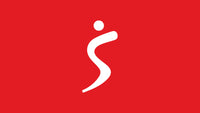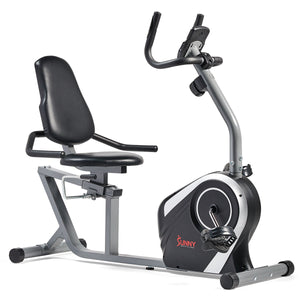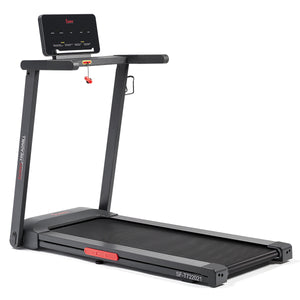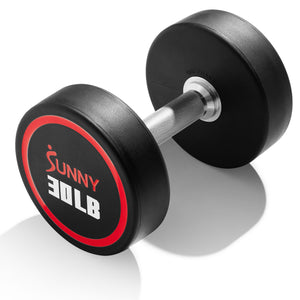Working hard is hard work. But working hard and not seeing the results you want is even harder.
It’s extremely common for fitness pursuits to run up against plateaus. Weight loss or strength gains stall, motivation dissipates, or yo-yo behaviors start to rear their ugly head.
The first thing to do is to remain calm. Nothing kills resolve faster than panic, and there is always a solution. In this article, we’ll discuss some of those solutions, or at least get you on the road to finding one of your own.
General Fitness Plateau Advice
Most fitness plateaus have a common cause. Here they are, one by one. (If you’re looking for specific strength or weight loss plateaus solutions, feel free to skip ahead to the following sections).
Wrong Priorities
The reason you may not be reaching the next level in your fitness goals—and I’m just going to say it—is that you don’t really want it enough. The plateau is YOU. There is no shame in this realization. It is much easier to imagine great accomplishments than it is to achieve them. But it is also easier to devalue the great and important work you’ve already done, the steps you’ve already taken, and the improvement you’ve already made.
Not valuing what you’ve done so far is a great way to limit your progress and make going further even harder.
To address this, think about your ultimate goal. Is it to lose 30 pounds? Deadlift 405? Put on ten pounds of muscle?
Now, think about this: how strict have you REALLY been with your diet? How dedicated to your workouts? How about your protein levels?
If it’s 100%, I salute you. But if you have a donut “every now and then,” or miss a workout, or skip a protein shake, then it’s clear your priorities don’t match your behavior.
Address that first, soberly, fairly, un-self-reproachfully, and you’ll make your first step towards breaking this plateau.
Try Something New
Novelty is a powerful tool. If you’ve been doing the same thing for a long time and can’t seem to move forward in it anymore, novelty can make all the difference in keeping you motivated.
A new exercise or variation, a new tool like a weight sled or ab roller, a new gym or location, a new sport...all of these can brighten your outlook.
When it comes to fitness, though, there is one challenge built into novelty that you’ll just have to deal with: if it’s new to you, you’re likely going to suck at it for a while.
If you can deal with this, and leave your ego behind, you’ll not only break through your plateau but increase your fitness competencies.
Get a Buddy
Whether a lifting buddy, a running buddy, a dieting buddy, or what have you, doing something with someone is magical. One reason is that humans like to compete, even if we don’t realize it. Studies show that people tend to work harder when there is someone to show off to. (1)
It can be hard to find someone who’s dedicated, but if it keeps you more accountable, it might be worth the search.
Work With a Fitness Pro
Similar to a buddy, hiring a fitness trainer can be massively helpful in pushing you through a plateau. Why? Because a) someone is keeping you accountable, b) they are pushing you to work harder, c) they are sharing the burden of improving your fitness.
Reason C is key. When everything is on you, the pressure can be too great to reach your full potential. Thinking about motivation, reasoning, methodology, and other concerns requires mental energy that takes away from your ability to focus on results.
But when someone else is helping you, the focus is purely on getting you to do your best work. Period. Which is ultimately what gets you where you want to go.
And yes, it costs money. But how much do you really want the thing? (Reread the first point I made above, under “Wrong Priorities”). If you really want a thing, you make changes to reach it. You invest in it. You believe in it enough to DO SOMETHING DIFFERENT and TAKE THAT NEXT NECESSARY STEP.
And if you don’t, that’s okay too. Life is complex. Just do you.
Focus on the Why
To go the extra mile, it is important to know why. Eating repetitive meal preps, hitting the gym at 6:00 in the morning, drinking a gallon of water a day, or any number of other perceived sacrifices must have a clearcut “why” attached to them, or they won’t last.
Or, they might last but you just can’t quite bring yourself to take it to the next level as your goals require it: eating 3 prepped meals a day instead of 2, hitting the gym 5 times a week instead of 3, or upping it to a gallon and a half of agua. Yes, people do that.
Here’s a fact: if you can’t eat the chicken and broccoli anymore, if you can’t get to the gym at 6am, or drink another drop, it’s possible these are not the tools for you. There are other ways to reach most goals.
But let’s just say you’re dedicated to them, and you want to do them, or even better: THERE IS NO OTHER WAY. Goals like this include reaching a certain body fat percentage, prepping for a bodybuilding show, getting ready for an endurance race, fitting into a wedding dress, or a true body transformation in a disproportionately short amount of time.
Focusing on the why means you consciously think about WHY you’re doing these things. Each one of them is important, so you might have to do this with all of them, especially on hard days (and you’re going to have hard days).
You say to yourself, “this meal/workout/water will BLANK.” Fill in the blank with the goal, or an element of the goal. “This meal will GIVE ME THE ENERGY TO DO MY CARDIO.” “This workout will HELP ME LOOK MY BEST ON STAGE.”
You can even focus on gratitude. “I’m grateful to this workout for allowing me to use my body to do amazing things.”
Specific Plateau Advice: Weight Loss
I touched on it earlier, but the most common cause of weight loss plateaus is not being in a caloric deficit. Put simply, you are taking in more calories than you are burning.
Deal with this issue first by eliminating empty calories. Empty calories are calories with little nutritional value. Examples include processed fats, refined sugars, and refined starches.
Okay, so what if you’ve eliminated empty calories but still can’t lose those last few pounds? Your cardio is on point, as is your hydration.
Some sage advice: focus on building muscle. Building muscle will increase your metabolism, which may help burn that last little bit of fat over the long term.
Yes, the scale weight may go up temporarily, but your body composition will shift in favor of lean mass and the long term effects will be worth it.
Take 2-3 months and emphasize resistance training. Choose some compound lifts like the bench press, pullup, deadlift, squat, and overhead press (wherever you can tolerate a little muscle growth). Increase your protein and carb intake by 25% each.
When it comes to carbs, I'm talking oatmeal, not Rolos. (Gosh, how I miss Rolos...)
After a 2-3 month period, maintain the protein intake but cut the carbs back to where they were. I’ll bet you a protein shake you break your fat loss plateau.
More Weight Loss Plateau Advice
Other common reasons for weight loss plateaus include:
- Eating before bed: stop late-night snacking. Eat more nutrients at dinner.
- Snacking on fat: nuts and seeds may taste amazing, but snacking on them all day is a great way to kill your caloric deficit. Be mindful of consuming these in moderation.
- Diet fatigue/no enjoyment: look up some new recipes or cuisine styles, or try new daytime snacking options.
- Poor hydration: you simply can’t perform at your highest level if you’re dehydrated. Increase your daily intake by 8 ounces a day each week until you’ve broken your plateau.
- Not enough micronutrients: dieting can result in fewer food options. This can lead to not having enough micronutrients (Vitamins A, B, minerals like potassium, etc). To deal with this, focus on whole foods as much as you can and/or take a high-quality multivitamin with a CGMP, NSF, USP, or other quality-control certification on it.
- Body Image Issues: “Hate” means that you don’t believe there’s anything good about a thing. It’s very hard to improve something that you hate. That goes double if you hate your body. Self-criticism pushes us only so far until it starts to tell us that the effort of self-improvement is not worth it. A certain degree of self-love needs to assert itself. If you have feelings about your body like this, do not self-diagnose. Talk to a mental health professional.
Specific Plateau Advice: Strength Gains
Here are the most common causes of strength plateaus:
- No caloric surplus: You’re not losing weight (hopefully), but you’re not getting stronger either. you might think you’re in a surplus, but you’re not. Increase your carbs and fats.
- Not enough protein: you’re gaining weight, but not getting stronger. You might be in a surplus, but your protein is too low. Increase it and reduce carbs or fats.
- No progressive overload: you’re not getting stronger because some element of your program has stalled. Increase the weight on the bar or do more sets or reps.
- Too little volume: Similar to the previous point, you’re just not doing the exercise enough to improve on it. Add some backoff sets after your heavy sets, or add some extra sets to another workout.
- Poor recovery: your calories, water, sleep, and/or stress are not being managed, or you’re pushing yourself too hard. This can prevent you from breaking through your plateau. Address those physiological factors – considering taking a de-load week (by backing off on intensity and volume) or a full week off.
- Body Dysmorphia: you’ve made progress, gotten bigger, et cetera, but you still feel weak and small. You eat all the protein and take all the supplements and go HARD in the gym all week every week, and you’re still NOWHERE NEAR your goal. Body dysmorphia is very real; it is not a “strategy”, and it is not something you need. Consider talking to a mental health professional to find constructive solutions so that you can continue improving without self-hate.
Conclusion
Plateaus are common to all endeavors, but fitness endeavors especially. It’s hard to get your body to do what you want it to, even though it is YOUR body. This has been a source of human anxiety and philosophical quandary since time immemorial.
What matters is not the rate at which you improve, but that you are continuously improving. Sustained, steady growth is key to long-term growth. And solutions take time. So don’t feel rushed in your pursuit, or in overcoming your plateau.
Your future self will thank you.
1. Feltz, D., Kerr, N. L., & Irwin, B. (n.d.-b). Buddy Up: The Kohler Effect Applied to Health Games. https://www.researchgate.net/publication/51539278_Buddy_Up_The_Kohler_Effect_Applied_to_Health_Games. Accessed 8 August 2023.



Mark Ludas CPT is a NASM-certified personal trainer with a decade of experience in the fitness industry. After an asthmatic childhood, Mark discovered his natural aptitude for fitness in his late twenties. At age 36, he accomplished a 300+ pound conventional deadlift and 280+ high-bar squat as a 6’5” 170-pound ectomorph on a fully vegan diet, all after just one year of proper self-programming. Mark is the founder of Resistance Quest Fitness, established in 2016. Additionally, he is a writer, actor, model, and musician. Find him on Instagram, Facebook, Youtube, and at www.resistancequest.com.

























Add Your Name & Email
Please enter your name and email to continue.We won’t display your email publicly.